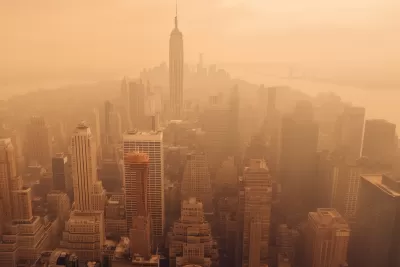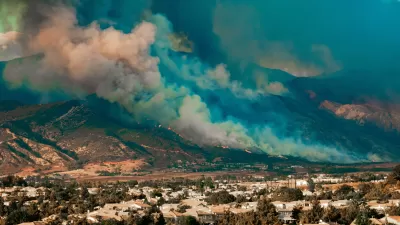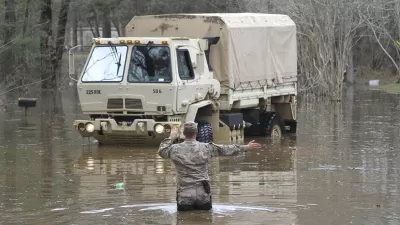“Nearly all” since 2001, according to a new study on California wildfires by the Lawrence Livermore National Laboratory published in the Proceedings of the National Academy of Sciences.

With much of the East Coast recently shrouded in wood smoke due to Canadian wildfires, as with many extreme weather events, there has been debate about how much to blame climate change for the unhealthy conditions. To be clear, a new study from the Lawrence Livermore National Laboratory (LLNL) is focused solely on California, so the findings do not necessarily apply to the Canadian wildfires.
Summer wildfire-burned acreage in central and northern California has “increased fivefold between 1996 and 2021 compared to between 1971 and 1995,” writes Anne M. Stark, an LLNL public information officer on June 12.
Although the drivers of increased temperature and dryness are known, the contribution of human-caused climate change to wildfire activity, relative to natural climate variation, is unclear.
However, a new study by a Lawrence Livermore National Laboratory (LLNL) scientist and collaborators shows that nearly all the recent increase in summer wildfire burned area is attributable to human-caused (anthropogenic) climate change. Anthropogenic simulations yielded burn areas an average of 172% higher than natural variation simulations.
Non-climate factors, including forest and woodland management that has “facilitated fuel buildup, which favors increased burn severity,” continue to play a role, adds Stark.
“Beneath these ‘external’ factors, natural climate variability also influences the occurrence and severity of forest wildfires, creating a noise that can mask the signal of human-caused impacts on wildfire changes,” said LLNL scientist Don Lucas, a co-author of the study.
Canada wildfires
In fact, climate variability may be why wildfire expert Mark Cochrane at the University of Maryland, when asked by Voice of America if climate change was “responsible for the wildfires burning in eastern Canada that supplied the smoke,” responded, a ‘definite maybe.’
“This could have happened without climate change,” Cochrane said. “On the other hand, because of climate change, more and more often the conditions are there for this sort of event.”
Additional reading on the LLNL study in Common Dreams: "Study Shows Climate Crisis Driving Increase in California Summer Wildfire Damage," June 13, 2023
Related in Planetizen: Wildfires Prompt Forestry Debate on Climate Change, Nov. 29, 2017
FULL STORY: Human-caused climate change at the center of recent California wildfires

Planetizen Federal Action Tracker
A weekly monitor of how Trump’s orders and actions are impacting planners and planning in America.

Chicago’s Ghost Rails
Just beneath the surface of the modern city lie the remnants of its expansive early 20th-century streetcar system.

San Antonio and Austin are Fusing Into one Massive Megaregion
The region spanning the two central Texas cities is growing fast, posing challenges for local infrastructure and water supplies.

Since Zion's Shuttles Went Electric “The Smog is Gone”
Visitors to Zion National Park can enjoy the canyon via the nation’s first fully electric park shuttle system.

Trump Distributing DOT Safety Funds at 1/10 Rate of Biden
Funds for Safe Streets and other transportation safety and equity programs are being held up by administrative reviews and conflicts with the Trump administration’s priorities.

German Cities Subsidize Taxis for Women Amid Wave of Violence
Free or low-cost taxi rides can help women navigate cities more safely, but critics say the programs don't address the root causes of violence against women.
Urban Design for Planners 1: Software Tools
This six-course series explores essential urban design concepts using open source software and equips planners with the tools they need to participate fully in the urban design process.
Planning for Universal Design
Learn the tools for implementing Universal Design in planning regulations.
planning NEXT
Appalachian Highlands Housing Partners
Mpact (founded as Rail~Volution)
City of Camden Redevelopment Agency
City of Astoria
City of Portland
City of Laramie





























